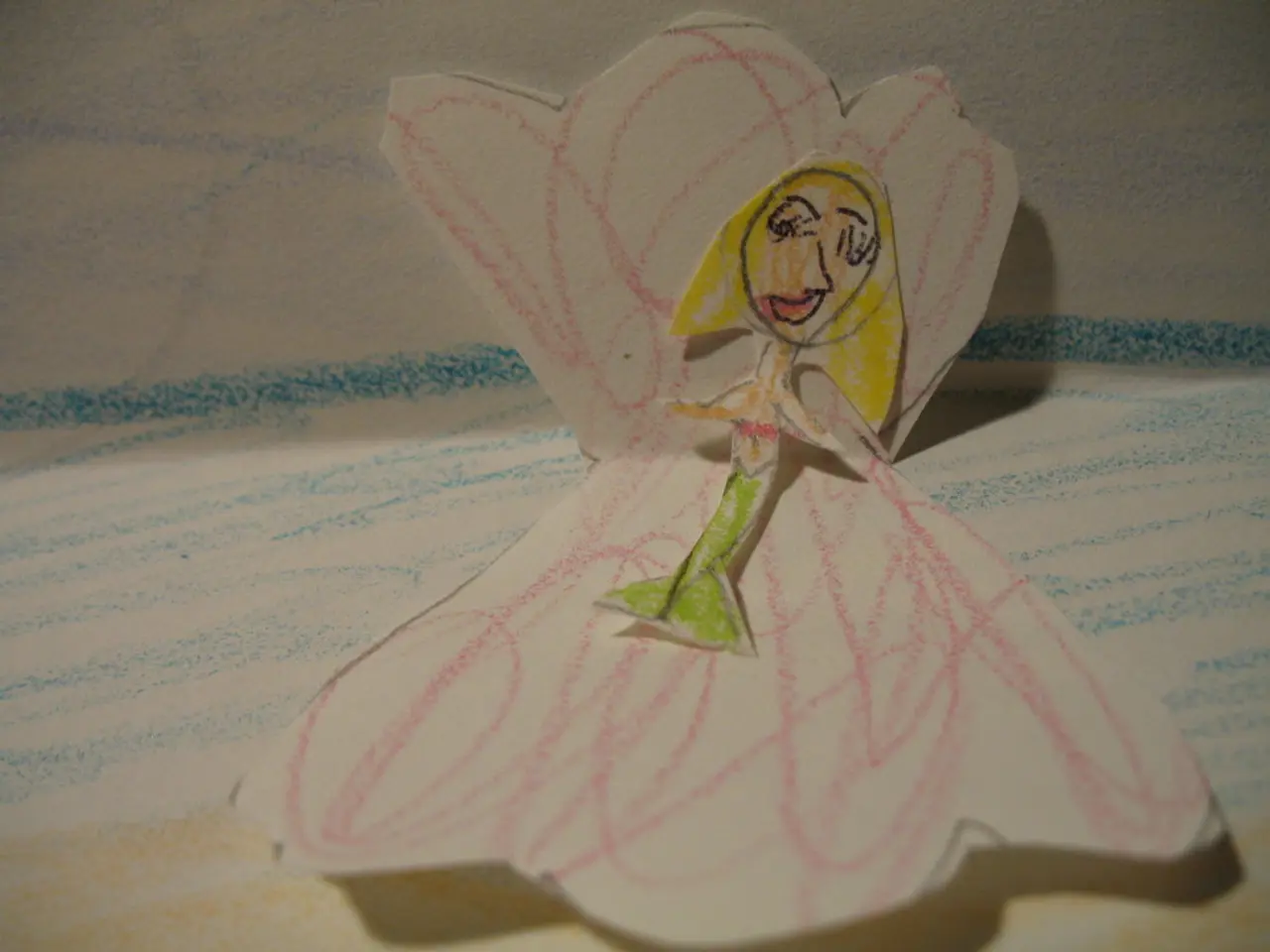Artificial Intelligence used to craft a convincing counterfeit musician, demonstrated by a YouTube celebrity
In the ever-evolving world of music, Artificial Intelligence (AI) is making a significant impact, creating musical superstars and revolutionising the industry. Rick Beato, a YouTube personality with over 5.1 million subscribers, recently demonstrated the process of generating an AI-created musical artist.
One such AI-generated band is The Velvet Sundown, which, interestingly, is not the work of human musicians. However, this revelation came later, as it was initially believed to be a real band. Andrew Frelon, who presented himself as a spokesman for The Velvet Sundown, was unapologetic about the band's fake existence.
AI is primarily used to generate musical artists through tools that create compositions, instrumentals, and even lyrics. These systems can produce full tracks rapidly, generate backing tracks, co-write lyrics, and help with song structure. AI acts as a creative partner or idea starter, rather than a full replacement for human musicians. This technology enables independent artists to produce music, videos, and marketing materials more efficiently, levelling the playing field in the music industry.
The Velvet Sundown, and other AI-generated artists, have gained massive streaming audiences, highlighting the rise of AI music presence on platforms like Spotify. AI is also used in live performances for generating soundscapes or transitions in real-time and in creating virtual performers or collaborations inspired by deceased artists, expanding the concept of musical legacies.
However, the ethical implications of AI-generated musical artists are significant and multifaceted. Concerns about authenticity and artistic identity arise as there is a fear that AI might replace human creativity or dilute the artist’s unique “fingerprint.” Musicians and fans value genuine emotional expression, which AI cannot fully replicate.
The legal status of AI-generated music is unclear, especially regarding the use of human-created content to train AI models and who owns the resulting music. This "Wild West" nature creates disputes about rights and revenue distribution. Lack of disclosure about AI involvement can mislead fans and distort perceptions of artistic creation.
Using AI to “resurrect” or extend deceased artists’ work involves ethical concerns about consent and respect for the original artist’s intent, raising questions about posthumous creations or virtual collaborations. The flood of AI-generated music could saturate the market, potentially affecting human artists’ visibility and economic opportunities.
Rick Beato, in his demonstration, used the headline "I'm Sorry...This New Artist Completely Sucks" for his creation, an AI-generated alt.country musician named Eli Mercer. The lyrics for 'West Texas Dreams' were pasted into an AI program called SUNO to generate two versions of the song. Another AI program, Claude, was used to generate the song for Eli Mercer, with the prompt about a college student pursuing a dream as a novelist in west Texas.
The AI-generated artist Eli Mercer has sparked intriguing responses from commentators. One claimed to have dated Eli Mercer's sister and never found her body after a West Texas tornado, while another shared memories of growing up with Eli Mercer in Lubbock, TX. Some commentators beneath the video shared personal anecdotes about their supposed past with Eli Mercer.
Despite the controversy surrounding AI-generated musical artists, they are a powerful creative tool driving innovation and accessibility. However, it is crucial to navigate these ethical issues regarding creativity, ownership, transparency, and the cultural impact on human musicians and their legacies.
- In the music industry, AI has generated bands like The Velvet Sundown, but it was later revealed that they are not produced by human musicians.
- AI tools can produce full tracks quickly, generate lyrics, and help with song structure, acting as a creative partner for human musicians.
- AI-generated artists, such as The Velvet Sundown, have gained significant streaming audiences and are used in live performances for soundscapes and virtual performers.
- The ethics of AI-generated musical artists are contentious, with concerns about authenticity, artistic identity, and the potential replacement of human creativity.
- The legal status of AI-generated music is unclear, especially regarding the use of human-created content to train AI models and ownership rights.
- There are ethical concerns about using AI to "resurrect" or extend deceased artists' work, particularly regarding consent and respect for their intent.
- Commentators have reacted intriguingly to AI-generated artists like Eli Mercer, with some sharing personal anecdotes about their supposed past with the fictional artist.




